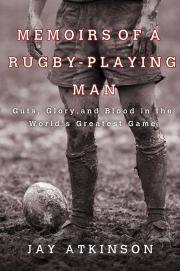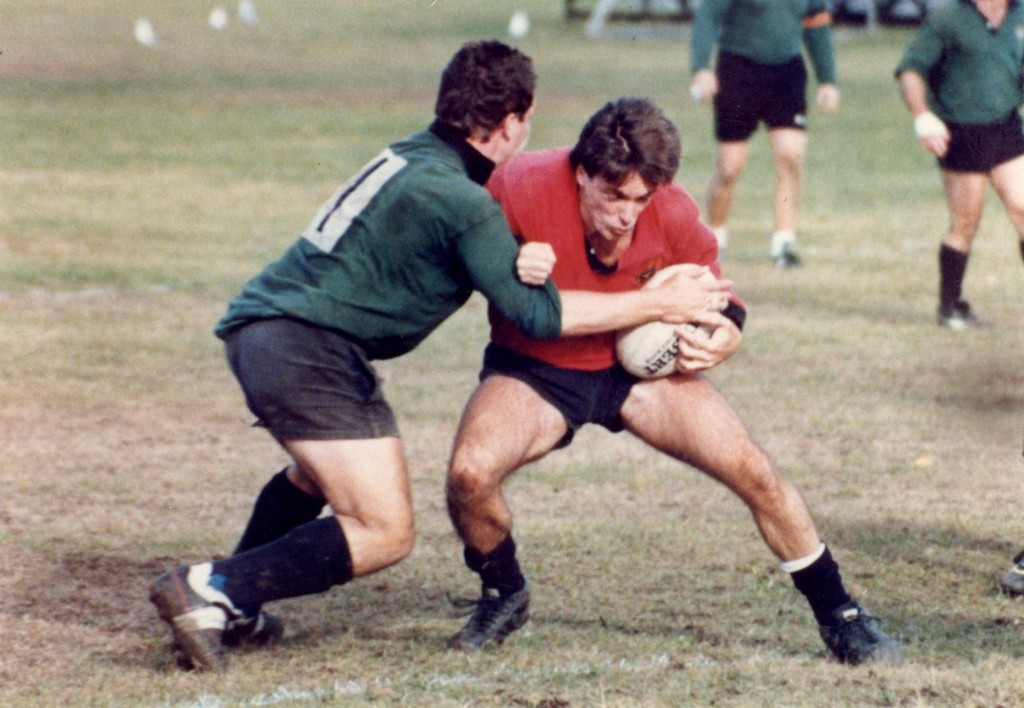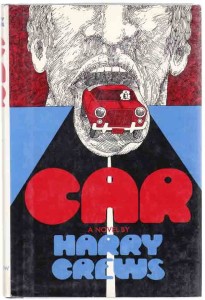Author Interview: Jay Atkinson’s Memoirs of a Rugby-Playing Man — Remembrance of Punches Past
If Wordsworth was right in saying that poetry is emotion recollected in tranquility, than a rugby memoir is a punch in the face reconsidered from a hospital bed.
Memoirs of a Rugby-Playing Man: Guts, Glory, and Blood in the World’s Greatest Game by Jay Atkinson. Thomas Dunne Books, 336 pages, $25.99.
By Bill Marx
African-American author Ishmael Reed thinks that “writin’ is fightin’,” so Jay Atkinson’s assertion that his memoir chronicling his decades as a rugby player amounts to a sort of “remembrance of slugs in the face past” makes sense, in a sort of bruising, Proustian way. The Boston Globe calls the book an “unabashedly macho memoir [that] is fueled by two passions: his love of grind-it-out athletic competition and the obvious joy he takes in the high-testosterone, alcohol-fueled comradeship of his fellow rugby players.”
True enough, but in this book and a number of others, including his earlier sports memoir Ice Time, Legends of Winter Hill, and Paradise Road: Jack Kerouac’s Lost Highway, Atkinson is a double-agent, a self-reflective man-of-action, a sensitive soul who observes, with reportorial exactitude and literate passion, the experience of being roughed up. Unlike Kerouac and others in this line of work, who are often obsessed with individual [male] assertion of grace under pressure, Atkinson generally situates his tussles, sports and otherwise, within a strong (and sane) sense of community and family.
I sent Jay a few questions via e-mail about Memoirs of a Rugby-Playing Man, from his feelings about being labeled a “macho” writer, the influence of the late Harry Crews on his work, and the role community plays in the book.
Arts Fuse: You aren’t that old—why a memoir of your days in sport now?
Jay Atkinson: My teammates are fond of saying I’m over a 100 in “rugby years.” Also, Harry Crews used to say if you have a good story to tell, tell it now; by the time you’re finished, you’ll have something else to write about.
AF: Understandably, Memoirs of a Rugby-Playing Man has attracted blurbs such as “testosterone-laden tale.” As a writer, you have been likened to a cross between Robert Frost and Bobby Orr. How comfortable are you with these characterizations?
Atkinson: I’d say I’m more of a cross between Bruins’ journeyman defenseman Gary Doak and Arthur Fiedler, just to name another white-haired guy. Really, all that’s just some magazine copywriter exercising his hyperbole muscles. Memoirs of a Rugby-Playing Man is a story about a local guy, me, who had some ups and downs and finally grew up while he was busy playing rugby.
AF: Some would say that surviving as a writer is tougher than succeeding as a rugby player. True or False? And why?
Atkinson: I’d say they are about equal. I see a question coming up below about Harry Crews, and I’ve already mentioned him twice here. Harry always said about writing (and it can be applied equally to rugby), “Difficult is the name of the game. If it was easy, everyone would be doing it.”
AF: Your most important literary mentor, Harry Crews, recently passed away. What did he teach you as a writer, and what has American literature lost with his death?
Atkinson: I can’t express in such a small space how much about the craft of writing I learned from Harry Crews’s patient instruction. As I say in the book, Harry’s excellence as a writing instructor has kind of been lost in the forging of the Crews legend: tough guy, iconoclast, etc. (I’ll never open a piece of narrative writing with a line of dialogue, to cite just one example. Harry would call that “a vacuum speaking into a vacuum.”) As a writer, Harry Crews left us many fine books, including A Childhood: the Biography of a Place, The Gypsy’s Curse, and A Feast of Snakes, to name but a few.
AF: The book is not just about male bonding on and off the rugby field, but it also deals with such experiences as the death of your father. Isn’t dramatizing the value of continuity in the lives of ordinary, working-class people—rather than the glories of competition—the real theme of your memoir?
Atkinson: I think you’re close there. To me, a memoir is an examination of one’s peak experiences contrasted with the quieter moments in a person’s life—perhaps most importantly, those times where the thrilling or harrowing events are put into a larger perspective. If Wordsworth was right in saying that poetry is emotion recollected in tranquility, than a rugby memoir is a punch in the face reconsidered from a hospital bed. I’ve been there and benefited from the trip.
I would add Car to Jay’s list of Harry Crews books worth reading. The novella is a prize piece of absurdist Americana in which a man tries and fails to eat an automobile, piece by piece. In Greek myth, men yearn to become gods. Crews saw that in America men dream of becoming their vehicles (i.e. the Transformers franchise, created by toy companies Hasbro and Takara). At one point, the character fantasizes about fusing with the auto he feeds on:
If he needed more air he’d turn on the air-conditioner. If he needed more strength, he’d burn a higher octane gasoline. If he needed more confidence, he’d get another hundred horses under the hood. If the light of the world bothered him, he’d tint his windshield. And his immortality lay in numberless junkyards, all easily accessible from anywhere in America. Go on down and replace his fender, replace his wheel, replace his engine even, replace everything until he was not even what he was when he started. Replace everything with all things until he was nobody because he was everybody.
— Bill Marx
Tagged: Car, Harry Crews, Jay Atkinson, memoir, Memoirs of a Rugby-Playing Man, Rugby



